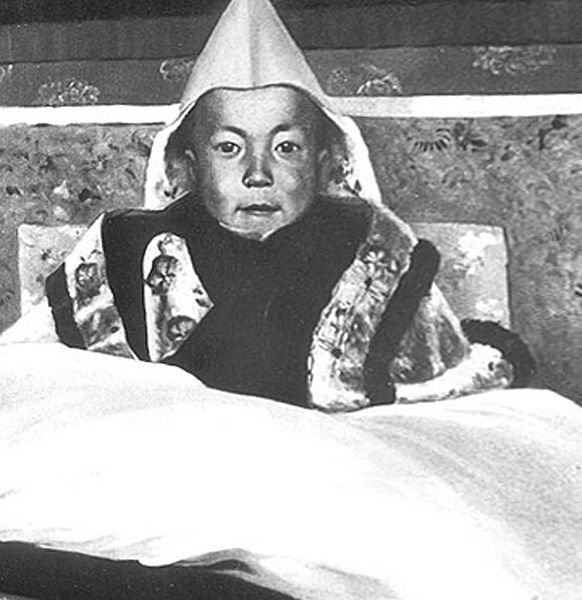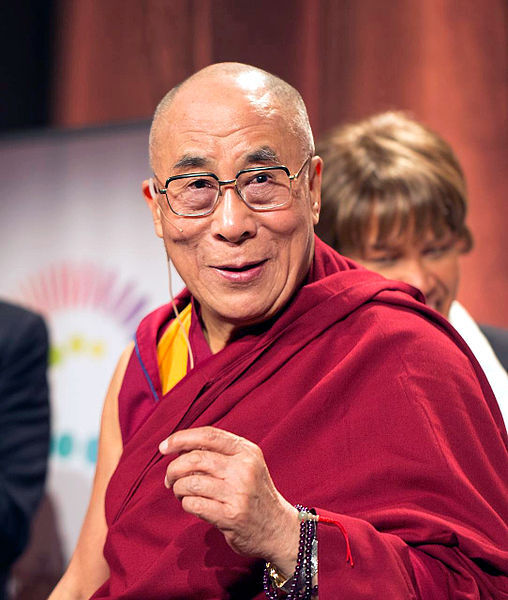Tenzin Gyatso is the 14th Dalai Lama, a figure of Buddhist political and spiritual authority. He is renowned for preaching peace throughout the world.
In 1950, Tibet was invaded by the Chinese army. For many years, the Dalai Lama negotiated with the Chinese leadership for Tibet to become free and autonomous. In 1959, to protect the Tibetan people from Chinese violence, the Dalai Lama went into exile in India. Thereafter, he increasingly distanced himself from political power, gradually separating church and state. He finally retired from political life in 2011 to devote himself to his spiritual role.
Three fundamental principles dictate his life: the promotion of human values, harmony between religions and the Tibetan cause. Even if he is sometimes refused entry to a country because of the threat of Chinese reprisals, the Dalai Lama travels the world to meet political and economic leaders, as well as high school students. At these meetings, he reminds people of the importance of compassion, wisdom, human equality, respect for others and peace.


-
1935: Tenzin Gyatso is born in Tibet on July 6.
-
1940: He is proclaimed 14th Dalai Lama on February 22, at the age of 4.
-
1950: The Chinese army invades Tibet on October 15.
-
1950: The Dalai Lama is enthroned temporal and spiritual leader of the Tibetans on November 17. His first decision is to release all prisoners.
-
1951: Delegates of the Dalai Lama and members of the People's Republic of China sign the Seventeen Point Agreement which stipulates that Tibet recognizes the superiority of China, without the Dalai Lama's consent. Tibet then became a Chinese province. According to the delegates, the Agreement was signed under Chinese pressure and threats. The Dalai Lama contests the agreement.
-
1959: Thousands of Tibetans gather in Lhasa to protest against the Chinese presence in Tibet and to affirm their allegiance to the Dalai Lama. The Tibetan people are contained, with great violence, by the Chinese. Thousands were killed or deported. Temples and monasteries are looted or destroyed.
-
1959: With American help, the Dalai Lama flees to India via the Himalayas.
-
1959: The Dalai Lama appeals to the United Nations to denounce the Chinese occupation and human rights violations against Tibetans. The UN adopts three resolutions to this effect (1959-1961-1965).
-
1960: The Dalai Lama creates Tibet's first government: the Tibetan Government in Exile, and writes a draft Tibetan constitution, the final version of which is adopted on March 10, 1963.
-
1989: He is awarded the Nobel Peace Prize for advocating non-violence and peace throughout the world.
-
2011: He retires from politics to devote himself entirely to his spiritual vocation. Tibet becomes a democracy.